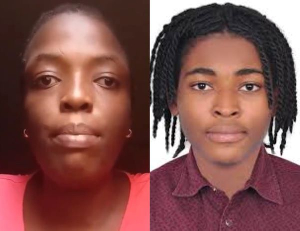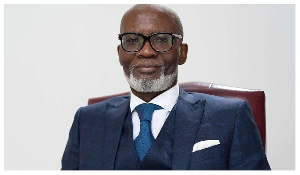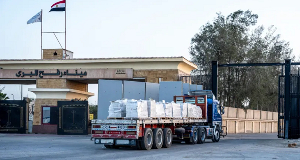I read Dr. Nii Moi Thompson’s article titled “Thompson on Ghana’s Oil Find – A Rejoinder” (Ghanaweb.com 7/5/07) and found it to be quite fascinating, if only because it treads familiar grounds vis-à-vis the treacherous terrain of media reportage. And since we have yet to hear from the Ghanaian Chronicle reporter who originally related his interview with Dr. Thompson to us, we, perforce, ought to confine our discussion to a few interesting issues highlighted by Dr. Thompson.
One such issue regards the author’s definition of the difference between “institutions” and “organizations.” While, of course, it cannot be gainsaid that “organizations” revolve around groups of people with clearly defined agendas, “institutions” are far more complex that a mere “system of rules and procedures that determine the operational modes of organizations.” In reality, “institutions” are functional organisms, and thus cannot be totally divorced from the “organizations” in which they operate. On the basic level, our societies are institutions in the organic sense of the fact that they will cease to exist, almost immediately, the moment that our customs and traditions – collectively labeled as “culture(s)” – are proscribed. What would then result is anomie or chaos. In sum, it appears contextually that what Dr. Thompson means by “institutions” are “protocols,” which could, indeed, with time and practice become traditions and cultures.
In any case, what also fascinated yours truly is the fact that the writer would rather propagandistically drop such names as Marcus Mosiah Garvey and Kwame Nkrumah without alerting his readers to the significant fact that while Marcus Garvey, for instance, dreamed of a unified “Black” African continent, the Jamaican-born political agitator was a brazen “Black Imperialist” of the kind that is insufferable in a civilized and unified Africa such as is currently being pursued by the African Union. And here must also be pointed out the fact that Mr. Garvey designated himself “Emperor of New Africa” even as leader of his United Negro Improvement Association (UNIA), an organization renowned for its Back-to-Africa agenda. Interestingly, Nkrumah was to claim that the greatest influence on his thinking was Garvey’s book of hodge-podge quotations titled The Philosophy and Opinions of Marcus Garvey. And here, also, it goes without saying that any critical thinker who is familiar with the preceding book cannot take it any more seriously than a mundane comic strip, such as famed cartoonist Ghanatta used to regale Ghanaians with awhile back. Nkrumah would also borrow the concept of a “Black Star Line” from Garvey’s ill-fated shipping-line venture, one that would dishonorably land the UNIA emperor in prison on mail-fraud charges in the United States, from where Mr. Garvey would later be deported to England.
But whether Nkrumah was, indeed, a “visionary” merely because his leadership “gave us an atomic reactor,” as Dr. Thompson claims, is rather quaint, since the same “visionary” Nkrumah who railed so vociferously against erstwhile Apartheid South Africa, also traded with the racist government more than he did with any other African country or government (see Kwame Arhin’s The Life and Work of Kwame Nkrumah). And so, perhaps, it would not be wholly impertinent to ask Dr. Thompson to offer his readers some explanation on this score. Likewise, the writer may do well to explain to his audience just why President Nkrumah, a Lenin Prize recipient (1961), also used the KGB to destabilize other African governments even while pontifically preaching African unification; as well as deporting Ghanaian-born Africans of non-Ghanaian ethnicity, simply because these bona fide Ghanaians had dared to support Nkrumah’s political opponents, primarily Drs. Danquah and Busia, which they had a legitimate right to do as Ghanaian citizens.
Furthermore, whether the mere possession of a low-grade research reactor would have done anything better for Ghana than primarily facilitate the perennial entrenchment of a pseudo-socialist dictator like the African Show Boy, remains to be incontrovertibly elucidated.
On the question of rank governmental corruption, perhaps Dr. Thompson ought to be exhorted to familiarize himself with the morally and legally withering report of the celebrated JIBOWU COMMISSION before proudly presuming to throw stones at the substantive government of the New Patriotic Party (NPP).
Also, it is unpardonably disingenuous and outright flagrant for Dr. Thompson to blame the malfeasance of the erstwhile Acheampong-Akuffo-led NRC/SMC juntas on the ruling New Patriotic Party government. Those of us who know better are pretty much aware of the fact of Gen. Acheampong having been a staunch Nkrumaist; and, needless to say, it is even on record that then-Col. I. K. Acheampong staged his 1972 putsch with the sole intention of returning Nkrumah’s CPP to power. We also recognize the glaring fact that what Dr. Thompson, like a devious and reckless journalist, the very kind of journalist whose work he claims to disdain, does is to surgically cite an instance of military junta corruption which occurred under the watch of Gen. F. W. K. Akuffo, and viciously, shamelessly and capriciously peddle it as a PP-NPP act of venality.
And by the way, has Dr. Thompson read President Nkrumah’s April 8, 1961 Dawn Broadcast to the Nation regarding rank corruption among the CPP top-hierarchy? If not, then by all means, let the writer finish reading it and then come back with more vitriol against the NPP. And for those of our readers who may not be aware of the preceding address, suffice it to say that President Nkrumah’s notion of honest executive leadership amounted to a cabinet minister and/or principal secretary owning two homes and two cars.
In sum, our advice to Dr. Nii Moi Thompson is tersely that those who live in straw-huts must be careful not to fight water with fire!

Views expressed by the author(s) do not necessarily reflect those of GhanaHomePage.














